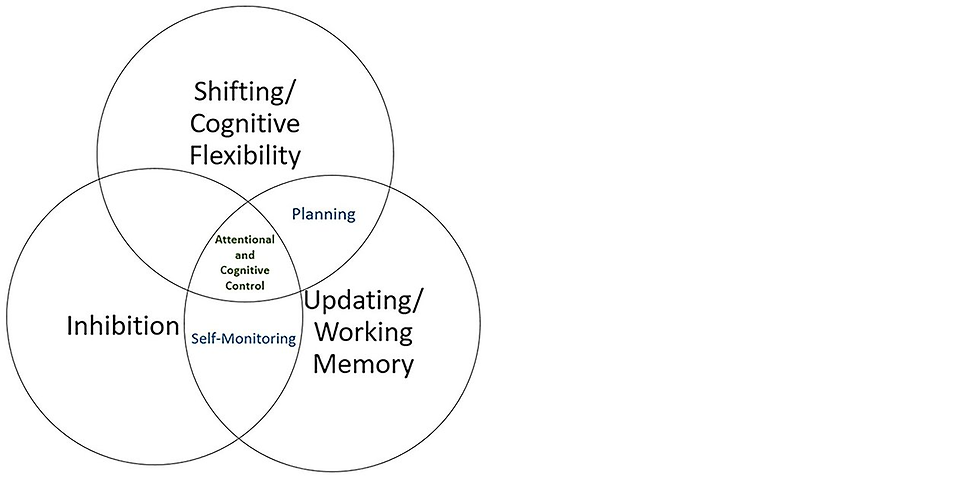Is weight loss all in the mind? 5 things scientifically proven to maintain weight loss gains
- Father li
- Dec 19, 2022
- 4 min read
Updated: Jan 6, 2023
Trying to lose weight, have you heard about the role of executive function?
The internet is full of new diets that will help you achieve your body image dreams. In January, many of us will start a new diet as part of our New Years Resolutions. Many diets are great for short-term weight loss, but does it last? Often the gains are short lived and we go back to our own patterns of eating and exercising, usually about late February! According to research, 80% of all new gym members beginning in January quit within the first five months.
Surprisingly, new research shows that the things that might help us lose weight at first, are fundamentally different from those that help us to keep the weight off longer term. Funnily enough though, many diets don't draw on the existing research of what works.
Research on what helps with permanent weight loss has been developing and, surprisingly, it's as much to do with how we think, as our behaviour.

According to scientific research, keeping the weight off for good requires these 5 things:
1. Being able to delay gratification
This means being able to resist particular foods and alcoholic drinks when around them. If you are one of those people like many of us that finds it difficult not to eat delicious treats when exposed to them, this means we may struggle with delayed gratification.
2. Setting realistic goals and keeping them top of mind
This means setting goal that I can achieve given that I still need the calories to get me through the day and for growth and repair of the body, but not so much that I've ingested too many calories. It means remembering my goals when rushing between meetings and having better oversight when thinking about eating a sugary doughnut to keep energised for the next thing.
3. Making plans for social eating and parties
Our love of partying and socialising (or even those who love it less but may still feel peer pressure) can be something that really messes up progress. We may all relate to the feeling of not wanting to spoil the fun or create a fuss or feeling the odd one out for not drinking or eating something. But gains can be lost fast and so holding on to plans and dietary needs are essential.
4. Physical activity daily routine
Whether it’s a daily walk or a daily cardio routine in the gym, sticking to a regular schedule of exercise is key to longer term change. This is one of those facts that personal trainers emphasise and aim to avoid us falling off the wagon.
5. Avoiding unhealthy behaviours
In the cold weather with reduced hours of day light, it’s very hard not to sink into another mini-series under blankets on the sofa. But binge watching can increase our sedentary behavivour, especially for those that work at a desk during the day.
Weight loss- is it all in the mind?
Achieving these 5 things seems straightforward but actually might be easier for some of us than others due to differences in our brains. Sticking to a diet or regime in different settings requires use of our executive function.
What's executive function got to do with staying in shape?
Executive function is the part of the brain responsible for planning and executing tasks, as well as switching across tasks and focusing attention. We use executive function everyday. Researchers find that people with high levels of executive functioning are much more able to stick to diets, than those with lower level of executive function. It also helps us to succeed at work and in studies.
The executive system involves the prefrontal cortex, basal ganglia and thalamus. Researchers find that when dieters have more success with weight loss, these parts of the brain are more active than in those that have less success with weight loss (to hear from some of these researchers click this video link here).

Executive function includes inhibition, working memory, planning, organization, and task-switching (Alvarez & Emory, 2006; Miyake et al., 2000; Suchy, 2009).
What researchers find is that the truth of weight loss is not sexy but it is common sense. People that plan for breaks in the routine are more likely to stick to their goals and manage changes and this ability to plan is linked to executive function.
Sadly, it's not the thought that counts when it comes to dieting!
Research finds that those that participants in weight loss studies that had a stronger intention to eat healthily but poor executive function were less likely to make healthy choices, than those that had a weak intention but had high executive functioning skills.
In other words, this suggests planning and will power is more important than positive intentions towards eating healthily.
The reason people that plan are able to maintain their weight-loss goals is that they "stick to the plan" in non-typical situations like eating in a restaurant or, attending an event. Whilst it’s hard to be “that guy” and bring your own substitute for a particular high fat and high carb dish, these are the small actions that contribute to lasting weight loss, researchers find.
Take-away
Diets take hard work and commitment to goals. But, they also require planning and this is linked to our executive function skills.
Some of us have more advanced executive function than others. Fortunately, executive functioning skills can be improved. There's a range of cognitive strategies that can help with improving these skills, both in children and adults. When our executive function is not impaired, losing weight and sticking to a diet, whatever life throws at us, is more doable.
Further resources
We like this video about executive function in children by Sabine Doebel
_edited_edited.jpg)




Comments